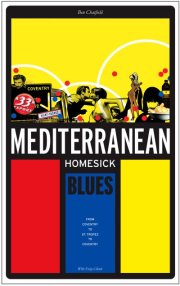
01/03/2013, by CLAS
The Year Abroad experience
I was recently reading an interview with the French philosopher Michel Foucault in which he talked about a period spent working in Sweden at the University of Uppsala in the 1950s. Foucault clearly remembered this experience of exposure to another language and another culture as being highly significant in terms of his personal and intellectual development. My reading of this interview coincided neatly with a visit to the French Department of former students Enzo Cilenti and Ben Chatfield. In what proved to be a very successful event they talked to our current students about Mediterranean Homesick Blues, a book they have recently published about a year spent teaching and working in the south of France in 1994.
All of this got me thinking about the ‘year abroad’ experience. One of the major benefits of a degree with a languages component is the chance to spend a period – in many cases a whole year – teaching, studying or working abroad. Students invariably return to their final year studies feeling, as Enzo and Ben clearly did, that they have grown as individuals. The most obvious manifestation of this is, of course, an increased linguistic competence and confidence. The year abroad provides a period of immersion in a foreign language: it is a time when you begin to think and even dream in a language that, up until that point, you may have engaged with primarily as an academic subject. I still remember as a first-year undergraduate being impressed (and not a little overawed) by the sophistication of final-year students who clearly spoke French with the distinctive nasal twang of southern France.
However, for most students, the personal impact of the year abroad goes beyond the purely linguistic. It is also an opportunity to engage with another culture in a very direct and intense way, and these experiences can continue to echo throughout people’s lives. Tony Blair’s former Director of Communications (and former language assistant) Alistair Campbell, for example, has talked of the way in which his lifelong admiration for the music of Jacques Brel dates back to his year abroad in the late 1970s. Campbell hitched a lift from a French lorry driver one October day in 1978 on the day that news of Brel’s death was announced. The radio played Brel songs for the whole journey and Campbell was hooked for life, to the extent that he made a programme for Radio 4 about his passion, ‘Brel et moi’, in 2008.
I share this enthusiasm for Brel, dating back to my own year abroad in France in the mid-1980s, and the experience of hearing these dramatic, often dark songs for the first time encapsulates for me a significant aspect of the year abroad. In the process of grappling with a foreign language, encountering new modes of expression, and building new friendships, students often find that they are exploring new elements, one might even say new versions, of themselves. By engaging with another culture and another language, we often find that we have to develop new aspects of our personalities and find new ways of expressing ourselves. This can be a frustrating and difficult process at times, but it can also be exhilarating and liberating.
Taking a broader view, the accumulated collective year abroad experience of the many students from British universities – who have been teaching, studying and working abroad for many years now – constitutes a small but significant slice of British social history. There must be a wealth of stories to be told. What was it like to spend time in the USSR or East Germany at the height of the Cold War? What about those who found themselves in France during the turmoil of 1968? More prosaically, many of us can still remember our first, rather agreeable, experience of French school mealtimes (compared to the ubiquitous cold mashed potato of 1970s school meals in Britain), the counterfoiled complexity of the student billet BIGE, and the cassette copies of Billy Bragg songs played to bemused French pupils. Small details perhaps, but all part of the rich texture of the year abroad.
John Marks
Associate Professor, Department of French and Francophone Studies
No comments yet, fill out a comment to be the first


Leave a Reply